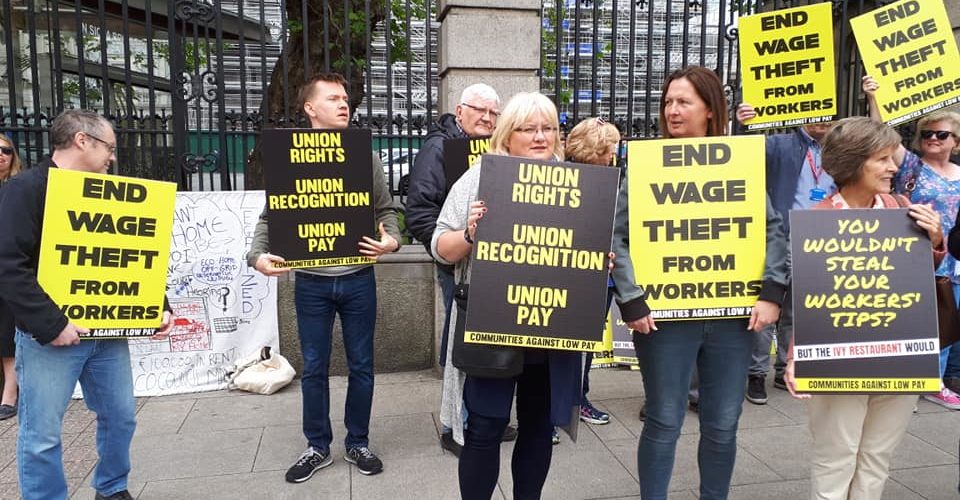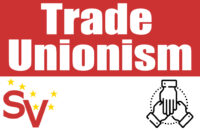The National Minimum Wage (Protection of Employee Tips) Bill is a welcome development, as no employer should be permitted to retain gratuities meant for workers.
It is a reflection of where we are as a society, and where the balance of power exists between employers and workers, that legislation is needed to stop employers stealing this money from those it is intended for. The contempt in which the working class are held by sections of the ruling class is also exposed, as some politicians will actually vote against this bill, while others have to be lobbied and put under pressure to vote for it. Occasionally the politicians are forced into a compromise and have to vote against their own class interest.
We cannot accept the culture where the kindness or whims of customers is used as a method of subsidising low pay, as is the norm in other countries, such as the United States, where tips are considered a part of wages.
The tourism industry has some of the lowest pay rates and poorest working conditions in the country, with the majority of employees on the minimum wage and minimum-hours contracts. It is important that these rates are increased and employment conditions improved to reflect the massive profits made by restaurants and hotels.
Tips should never be seen as a substitute for proper rates of pay and proper conditions.
The theft of tips by employers is only a symptom of the exploitation of workers who are already some of the most exploited in the country. The work that has been done by Communities Against Low Pay in supporting these vulnerable young workers is to be commended. These workers should gain confidence from the solidarity action taken by CALP and know they are not on their own and that their exploitation has been noticed.
The next step in building on their strength and public support is for the workers themselves to get organised, join a union, and hit the employers where it really hurts: their profits. They need to ballot for strike action and to place permanent pickets on the restaurants until such time as their demands are conceded.
After all, they are not looking for anything above what they deserve: a fair day’s pay for a fair day’s work. And if customers feel happy with the service they provide and give them a gratuity, they are giving it to the staff and not to supplement the profits of the business.
Rogue employers, such as the Ivy Restaurant in Dawson Street, Dublin (part of an English chain), need to be exposed for what they are. The best way that customers can support the workers is by not going to restaurants that steal employees’ tips; by going there you are supporting this practice.






